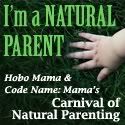
Since it's World Breastfeeding Week, I thought this would be the perfect time to write about a new project I'm involved with: Human Milk 4 Human Babies.
All human babies deserve human milk. It's naturally best for human babies. Unfortunately, some women are unable to breastfeed. Though there are several milk banks around the country, the milk is expensive to purchase (upwards of $100 per day) and generally reserved for babies that are premature and/or very ill. Consequently, many mothers turn to formula to feed their babies.
The mission of Human Milk 4 Human Babies (HM4HB) is
"to promote the nourishment of babies and children around the world with human milk." Using the popular social networking site, facebook, the group helps to connect families in need of milk with mothers that have a surplus. Currently there are over 130 HM4HB community pages (representing 52 countries) with 20,000 community page members. The group estimates that "through our pages, hundreds of babies in need receive breastmilk every single day."
Of course, many people may question the safety of milksharing. HM4HB operates on the principle of informed consent. On their
website they state "
we trust, honour, and value the autonomy of families and we assert they are capable of weighing the benefits and risks of milksharing in order to make choices that are best for them. We hold the space for them and protect their right to do what is normal, healthy, and ecological." On their
FAQ page, HM4HB suggests several things to consider when screening a donor, and recipients can ask for donors to take blood tests or other health screenings.
True, there are risks to informal milk sharing, but there are also risks to formula and risks of not breastfeeding. One of the best articles I have read on the subject is
"Risks of Informal Breastmilk Sharing versus Formula Feeding" on the blog PhD in Parenting. The article touches on the fact that when you give babies formula, you are accepting the risks that babies are more suceptible to bacteria and disease, babies have a higher likelihood to have ear infections, respiratory tract infections, asthma, childhood lukemia, and diabetes, among other health problems. Both shared breastmilk and formula are at risk for being contaminated, however breastmilk can be
flash heated to kill bacteria and HIV. (Flash heating is how I've always reheated frozen breastmilk anyway.)
The World Health Organization has stated:
For those few health situations where infants cannot, or should not, be breastfed, the choice of the best alternative – expressed breast milk from an infant’s own mother, breast milk from a healthy wet-nurse or a human-milk bank, or a breast-milk substitute fed with a cup, which is a safer method than a feeding bottle and teat – depends on individual circumstances.
Notice that a "breast-milk substitute" (e.g. formula) is LAST in the priority list for alternatives to breastfeeding.
Personally, I'm not sure why the concept of a wet-nurse is so taboo in our society. I'd be willing to do it, but I doubt anyone I know would take me up on the offer. I'm sure it's much easier and more convenient to use formula than to find a breastmilk donor, but I'm so glad to know that should I ever need it, there is another option to feed my baby.
I absolutely love this part of the Human Milk 4 Human Babies Vision Statement:
Breastmilk, the biologically normal sustenance for humankind, is a free-flowing resource and mothers of the world are willing to share it. Milksharing is a vital tradition that has been taken from us, and it is crucial that we regain trust in ourselves, our neighbors, and in our fellow women. Feeding any breastmilk substitute is not without risk and we support the families who know there is another option. We are the bridge that connects local families and brings them together again as milksharing communities. Indeed, the future of humanity depends on our return to sharing in a local and tangible way with one another.
We want milksharing and wet-nursing to be commonplace and babies to be fed at women's breasts whenever and wherever they need it. We dream of a world where mothers from previous generations pass on the tradition of breastfeeding and are a wealth of knowledge and support. We can forsee a time when women protect each other and help one another feed their babies so that every mother feels whole and no mother feels broken or that her body is failing her. We imagine a world where family members, friends, lactation consultants, doctors, and midwives do not hesitate to recommend donor milk when it is needed. We envision a future where families come together to raise this generation, and the next, by nourishing human babies everywhere with human milk and unconditional love.
I think the vision of Human Milk 4 Human Babies is beautiful, and I want to do everything I can to help that vision become reality. I encourage you to find your
local HM4HB facebook page, in case you ever need a donor or could become a donor yourself. (For my local friends, here's the link to
the Utah HM4HB page and to the
Idaho HM4HB page.)
***
I’m celebrating World Breastfeeding Week with Natural Parents Network!
You can, too — link up your breastfeeding posts from August 1-7 in the linky below, and enjoy reading, commenting on, and sharing the posts collected here and on
Natural Parents Network.
(Visit
NPN for the code to place on your blog.)










































